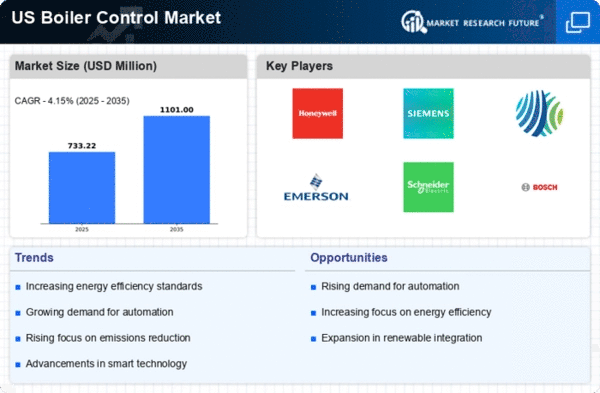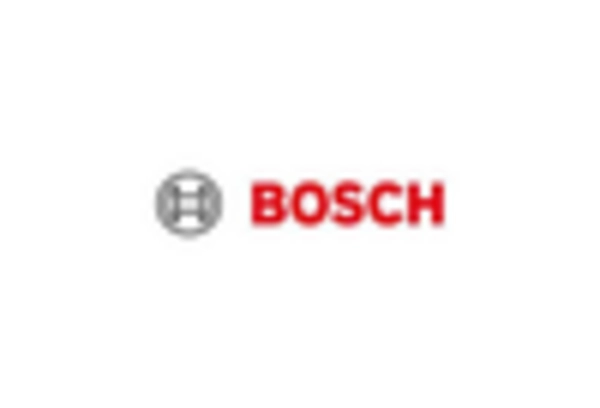Rising Energy Costs
The increasing costs of energy in the US are driving the boiler control market. As energy prices continue to rise, businesses and homeowners are seeking more efficient heating solutions. The implementation of advanced boiler control systems can lead to significant reductions in energy consumption, potentially lowering operational costs by up to 30%. This trend is particularly evident in industrial sectors where energy efficiency is paramount. The boiler control market is thus witnessing a surge in demand for technologies that optimize fuel usage and enhance overall system performance. Furthermore, regulatory pressures to reduce energy consumption are likely to further propel the adoption of sophisticated boiler control systems, making them a critical investment for many organizations.
Regulatory Compliance
The boiler control market is significantly influenced by stringent regulatory frameworks aimed at reducing emissions and enhancing energy efficiency. In the US, regulations such as the Clean Air Act impose limits on emissions from industrial boilers, compelling operators to adopt advanced control technologies. Compliance with these regulations often necessitates the integration of sophisticated boiler control systems that can monitor and adjust operations in real-time. This has led to an increased market demand for solutions that not only meet regulatory standards but also improve operational efficiency. As regulations evolve, the boiler control market is expected to expand, with companies investing in technologies that ensure compliance while optimizing performance.
Increased Focus on Safety
Safety concerns are paramount in the boiler control market, particularly in industrial settings where boiler failures can lead to catastrophic incidents. The implementation of advanced control systems enhances safety by providing real-time monitoring and automated responses to potential hazards. This focus on safety is driving the adoption of boiler control technologies that incorporate fail-safes and emergency shut-off features. As organizations prioritize workplace safety, the demand for reliable boiler control systems is likely to increase. Furthermore, regulatory bodies are also emphasizing safety standards, which may further propel the market as companies seek to comply with these requirements.
Technological Advancements
Innovations in technology are reshaping the boiler control market. The advent of IoT and AI-driven solutions is enabling more precise control and monitoring of boiler systems. These advancements allow for predictive maintenance, reducing downtime and enhancing reliability. For instance, predictive analytics can forecast potential failures, enabling timely interventions that can save companies substantial amounts in repair costs. The market is projected to grow as these technologies become more accessible and affordable. In fact, the integration of smart technologies is expected to increase operational efficiency by up to 25%, making it a key driver for the boiler control market.
Growing Demand for Energy Efficiency
The push for energy efficiency is a significant driver in the boiler control market. As organizations strive to reduce their carbon footprint and operational costs, the demand for energy-efficient boiler systems is on the rise. Advanced boiler control technologies can optimize fuel consumption and reduce waste, aligning with sustainability goals. In fact, studies indicate that implementing these systems can lead to energy savings of up to 20%. This trend is particularly relevant in sectors such as manufacturing and commercial buildings, where energy costs constitute a substantial portion of operational expenses. Consequently, the boiler control market is expected to experience robust growth as more entities recognize the benefits of energy-efficient solutions.
















